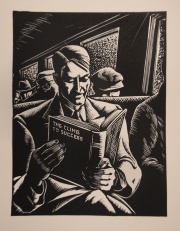Using fiction writing to develop empathy/ Course outline/Overview
What is Literary Fiction?
Every writer, new or established, first began as a reader. So, before we ask the question of why we write fiction, and more specifically literary fiction, let us first start with why we read it. Most readers possess an eclectic interest; they read to be entertained, to laugh, to be fascinated, but above all people who read literary fiction do so in order to understand and share the feelings of another. This concept is called empathy, and it is why we read literary fiction. Empathy connects us to characters from the distant past, like those in Charles Dickens’ tales. It allows us to vividly experience a character’s life alien to our gender, social class, or race. And empathy even allows us to view characters who commit heinous crimes as human beings. But if you doubt this claim as too abstract, take a recent scientific study into account. P. Matthijs Bal and Martijn Veltkamp authors of the study “How Does Fiction Reading Influence Empathy? An Experimental Investigation on the Role of Emotional Transportation” found that reading “fiction influences empathy of the reader, but only under the condition of low or high emotional transportation into the story.” A reader of a book of popular fiction, like Fifty Shades of Grey will not gain the same level of empathy as a one who reads a work of literary fiction, such as James Joyce’s Dubliners. For those of you who enjoy kinky Twilight fan fiction, take heart; as readers we are drawn to authors and works that speak to our interest. However, writers of literary fiction must leave the comfort zone of the familiar to seek out work outside of their experience in order to expand our understanding of empathy. Thus it is crucial for writers to read literary fiction, and to read it widely.


